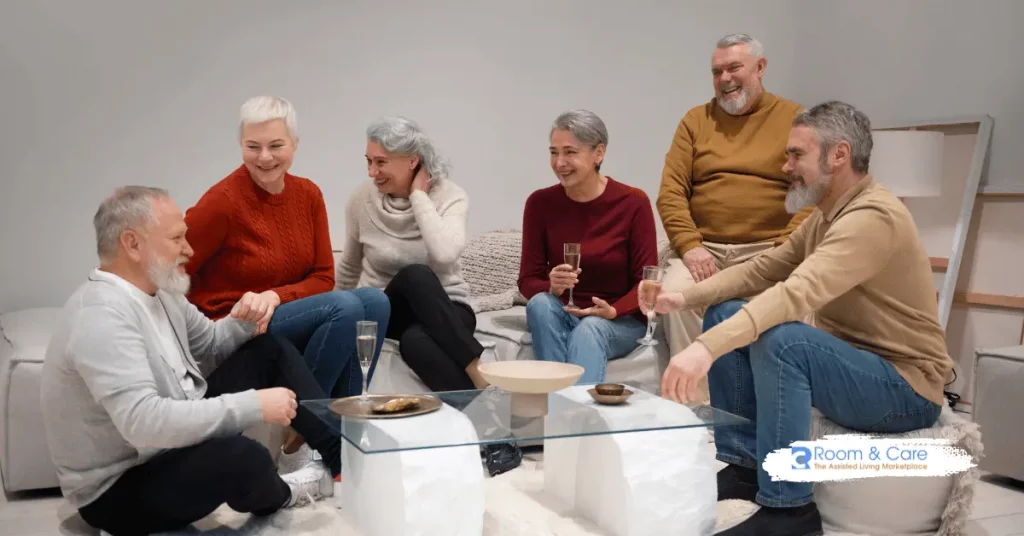

Finding the right care solution for individuals with mental health challenges is essential for their overall well-being and recovery. Adult group homes for mental health provide a safe, structured environment tailored to those who need consistent care while fostering community, independence, and support. This guide offers an in-depth look into adult group homes, how they differ from other care settings like adult family homes and assisted living facilities, and what to consider when selecting the best option for your needs.
Adult group homes are residential facilities designed to cater to individuals with mental health conditions who may struggle to live independently. These homes provide a supportive environment with professional staff offering services such as therapy, medication management, and life skills development. Unlike hospitals or clinical settings, group homes create a more homely atmosphere, emphasizing comfort, community, and gradual recovery.
When exploring care options, it’s essential to differentiate between adult group homes, adult family homes, and assisted living facilities:
Adult group homes focus specifically on mental health, providing targeted care while encouraging independence and community participation.
Adult group homes offer unique benefits that distinguish them from other care options. Understanding these features can help you determine whether a group home is the right choice for you or your loved one.
Routine is critical for individuals managing mental health conditions. Adult group homes provide a structured daily schedule, fostering stability and predictability. This environment helps residents manage their symptoms and build healthier habits over time.
Group homes often include a wide range of mental health services tailored to individual needs. These may include:
Living in a group setting allows residents to form meaningful relationships with peers who understand their experiences. Many group homes facilitate activities like shared meals, group outings, and recreational programs to build camaraderie and reduce feelings of isolation.
While providing necessary support, group homes also encourage residents to take responsibility for their daily lives. This could include managing personal hygiene, participating in chores, or even exploring job opportunities when appropriate.

Selecting the right group home is a significant decision that requires careful research and evaluation. Here are some key factors to consider:
The home’s location can impact the resident’s quality of life. Proximity to family members, healthcare providers, and public transportation ensures convenience and continued social interaction.
Qualified staff are essential for providing effective mental health care. Look for homes with experienced mental health professionals and a low resident-to-staff ratio to ensure personalized attention.
Different group homes offer varying levels of care and services. Some provide specialized therapy, while others emphasize life skills or recreational activities. Consider the resident’s specific needs when evaluating these offerings.
A licensed and accredited home demonstrates compliance with state regulations and high standards of care. Always verify that the facility meets these criteria.
The cost of care varies depending on the level of support provided. Some homes accept Medicaid, private insurance, or sliding-scale fees to make services more affordable. Ensure you understand the pricing structure and potential financial assistance options.
Choosing a group home can feel overwhelming, but a systematic approach can simplify the process. Here are some practical steps to guide your search:

Adult group homes are ideal for individuals with mental health conditions who require structured support but do not need hospitalization. This includes those with depression, anxiety, bipolar disorder, or schizophrenia.
The duration of stay varies based on individual needs. Some residents live in group homes long-term, while others transition to independent living after gaining the necessary skills and stability.
Many group homes accept Medicaid or private insurance, but coverage depends on the specific facility and the resident’s policy. Verify coverage with both the home and the insurer.
Most group homes encourage family visits and involvement in care planning. Regular visits can strengthen relationships and provide additional emotional support.
The supportive environment of adult group homes plays a critical role in the recovery process. By combining professional care with peer support and opportunities for personal growth, these homes empower residents to rebuild their lives and regain independence.
Moreover, adult group homes offer a less isolating alternative to inpatient treatment, helping residents reintegrate into their communities. Programs emphasizing life skills development, vocational training, and social engagement prepare individuals for a successful transition to independent living or other care settings.
While adult group homes are an excellent choice for many, they may not suit everyone. Other options include:
If you’re unsure which option is best, consider seeking guidance from organizations like Room and Care, which connects families with a wide range of care facilities tailored to their unique needs. With no referral fees or middlemen, this service ensures cost-effective and direct access to the best care options.
Adult group homes for mental health are invaluable resources, offering stability, care, and community to individuals in need. By fostering independence and providing access to professional support, these homes pave the way for recovery and improved quality of life.
When choosing a group home, consider location, services, staff qualifications, and costs. Take the time to visit facilities, ask questions, and involve loved ones in the decision-making process. For a streamlined search experience, trusted resources like Room and Care can help connect you with the right facility.
The path to recovery starts with finding the right support system. Explore your options today and take the first step toward a brighter future for you or your loved one.